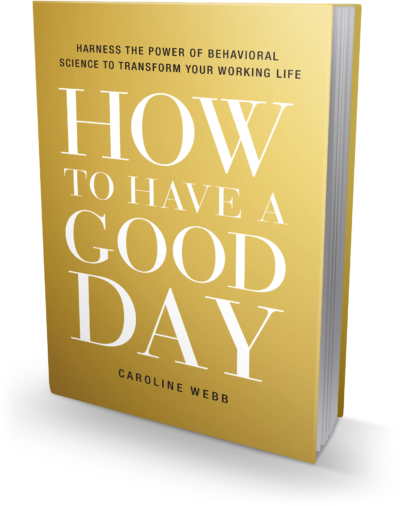How To Have A Good Day
Harness the Power of Behavioral Science to Transform Your Working Life

In How to Have a Good Day, economist and former McKinsey partner Caroline Webb shows readers how to use recent findings from behavioral economics, psychology and neuroscience to transform the quality of our everyday lives – at work and beyond.
Advances in the behavioral sciences are giving us an ever-better understanding of how our brains work, why we make the choices we do, and what it takes for us to be at our best. But it hasn’t always been easy to see how to apply these insights in real life – until now. In How to Have a Good Day, Caroline Webb translates three big scientific ideas into step-by-step guidance that enables us to make every day feel more like our best days, by showing us how to: set better priorities, make our time go further, ace every interaction, be our smartest selves, strengthen our personal impact, be resilient to setbacks, and boost our energy and enjoyment. In short: she shows us how to take more control over the quality of our days – whether the “day job” sees us in an office, a studio, outdoors or at home.
How to Have a Good Day was hailed by Forbes as a “must-read business book,” described by Fortune as one of their top “self-improvement through data” books, and listed by Inc as one of the best 15 leadership and personal development books of the past five years. Written in an accessible, engaging style for anyone with an interest in evidence-based self-improvement, the book has been widely lauded in the media, winning plaudits from publications as diverse as the Financial Times, TIME magazine, and Cosmopolitan. It’s been described by Susan Cain as “extraordinary”, Cass Sunstein as “wise and humane,” Tom Peters as “magisterial,” and Dan Pink as “smart, thorough, and eminently practical.” (You can read more endorsements below.) How to Have a Good Day has so far been published in 14 languages and more than 60 countries.
Available at these retailers




















